Curious about Aspen wood? Ever wondered if this unique, soft yet durable wood is a hardwood? Dive in as we unravel the mystique of Aspen, its attributes, and its diverse uses. Let’s explore!
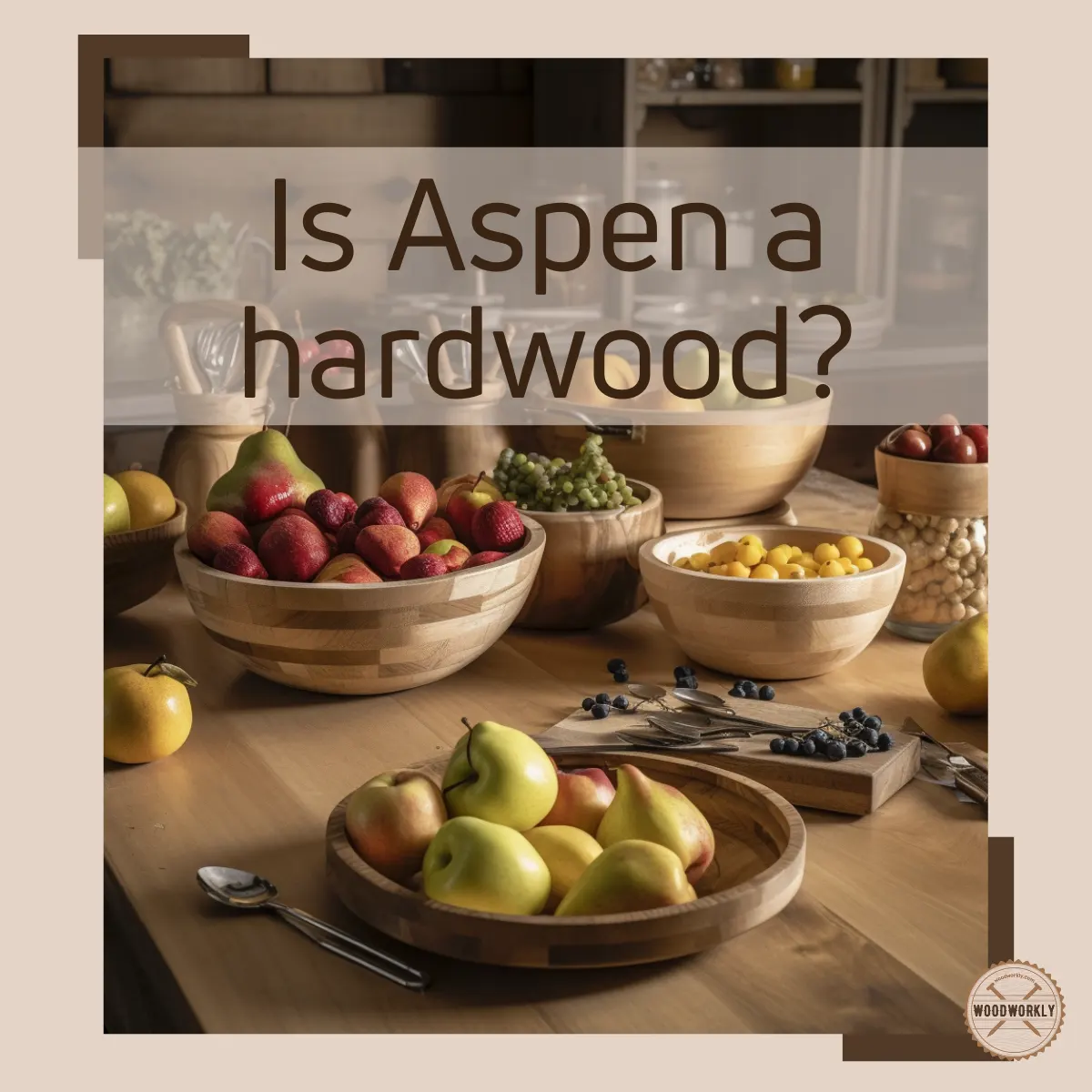
Aspen is an abundant, blond, and splinter-free wood that is popular for stuffing, packing, furniture making, and paneling and is also used as a source for the pulping industry as well.
When it comes to woodworking with Aspen wood, I was curious about its hardness and did deep research about it.
Now with years of experience, here’s what I know about, Is Aspen a hardwood?
Yes, Aspen is a hardwood. It’s classified as such because it comes from a deciduous tree that loses its leaves seasonally. However, with a Janka hardness rating of 420, it’s considered one of the softer hardwoods, yet it’s still durable and versatile for many uses.
But there’s a lot more to know about the hardness of Aspen wood!

However, before you start woodworking with Aspen wood, there are a few things in terms of hardness you will want to know about.
In this article, I’ll review whether is Aspen a hardwood, how hard is it, characteristics and uses of Aspen wood.
Plus, I’ll answer some frequently asked questions as well.
Let’s dive in!
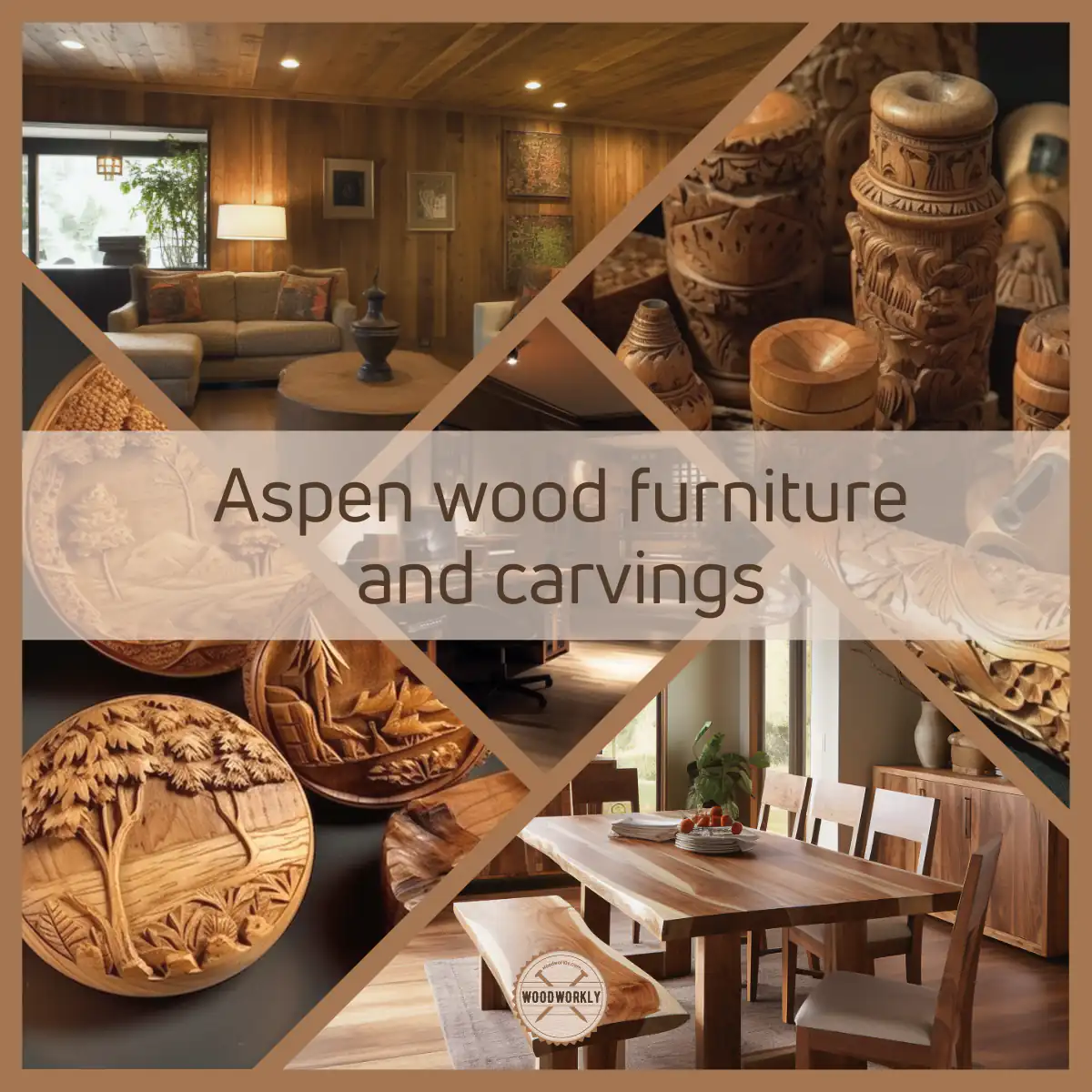
First of all, let’s have a quick look at what is aspen wood.
What is Aspen Wood?
Aspen wood is a unique type of lumber, hailing from the Populus or poplar family.
Known for its straight grain and light coloration, this wood offers a fine and uniform texture that is loved by woodworkers and homeowners alike.
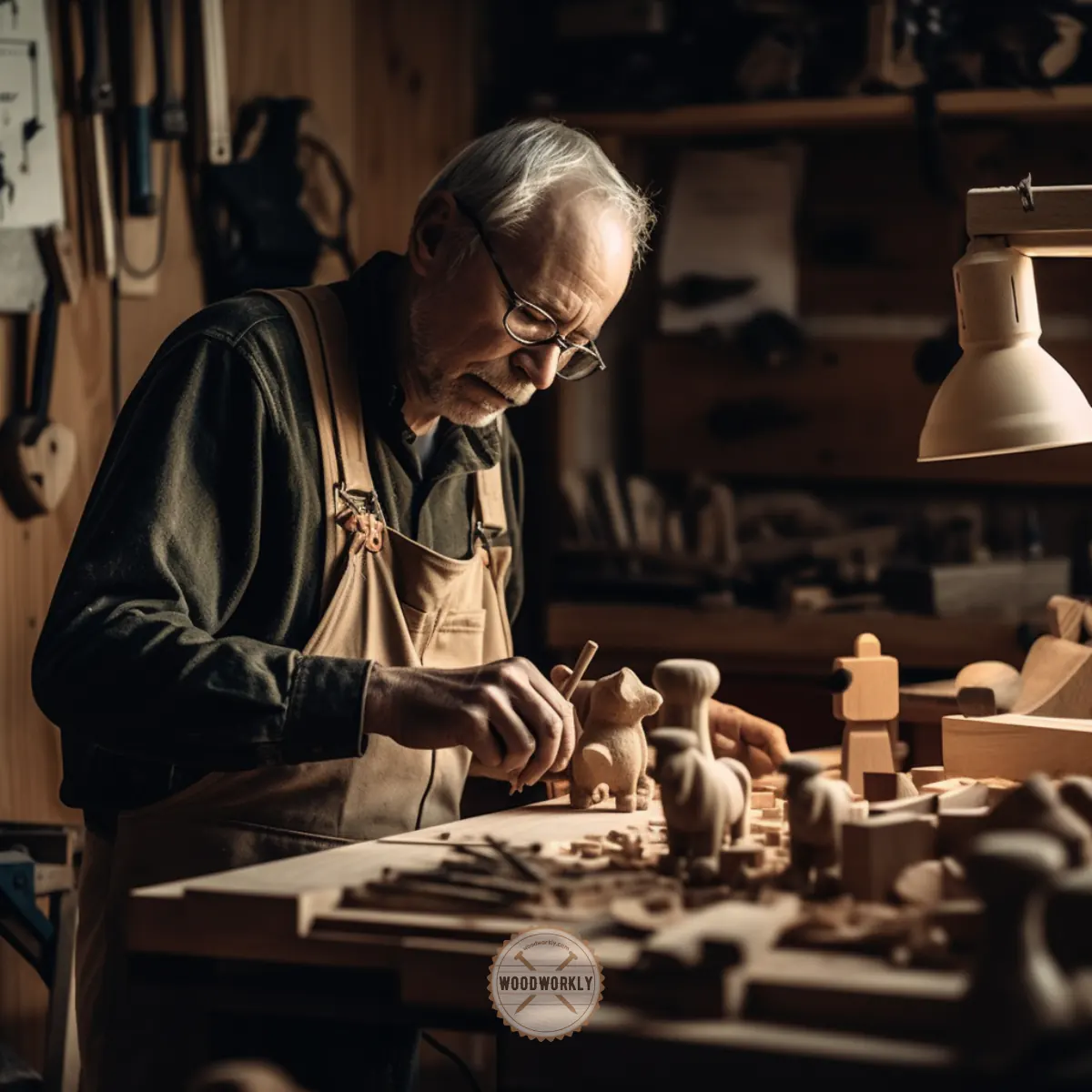
Origin and Features
Aspen trees grow abundantly in North America, northern Europe, and parts of Asia.
Their wood is relatively light and soft compared to many other hardwoods.
It’s quite notable that the sapwood, or the outer part of the tree trunk, is white, and this gradually blends into a light brown heartwood at the core of the tree.
Aspen has low bending strength and stiffness, with a Janka Hardness Scale rating of 420, making it one of the softer hardwoods.
Yet, it possesses medium shock resistance, ensuring it can withstand some wear and tear.
The term “hardwood” is related to the deciduous nature of the tree (meaning it loses its leaves seasonally), not necessarily the hardness of the wood.
So, despite its relatively low hardness, aspen is indeed a hardwood.
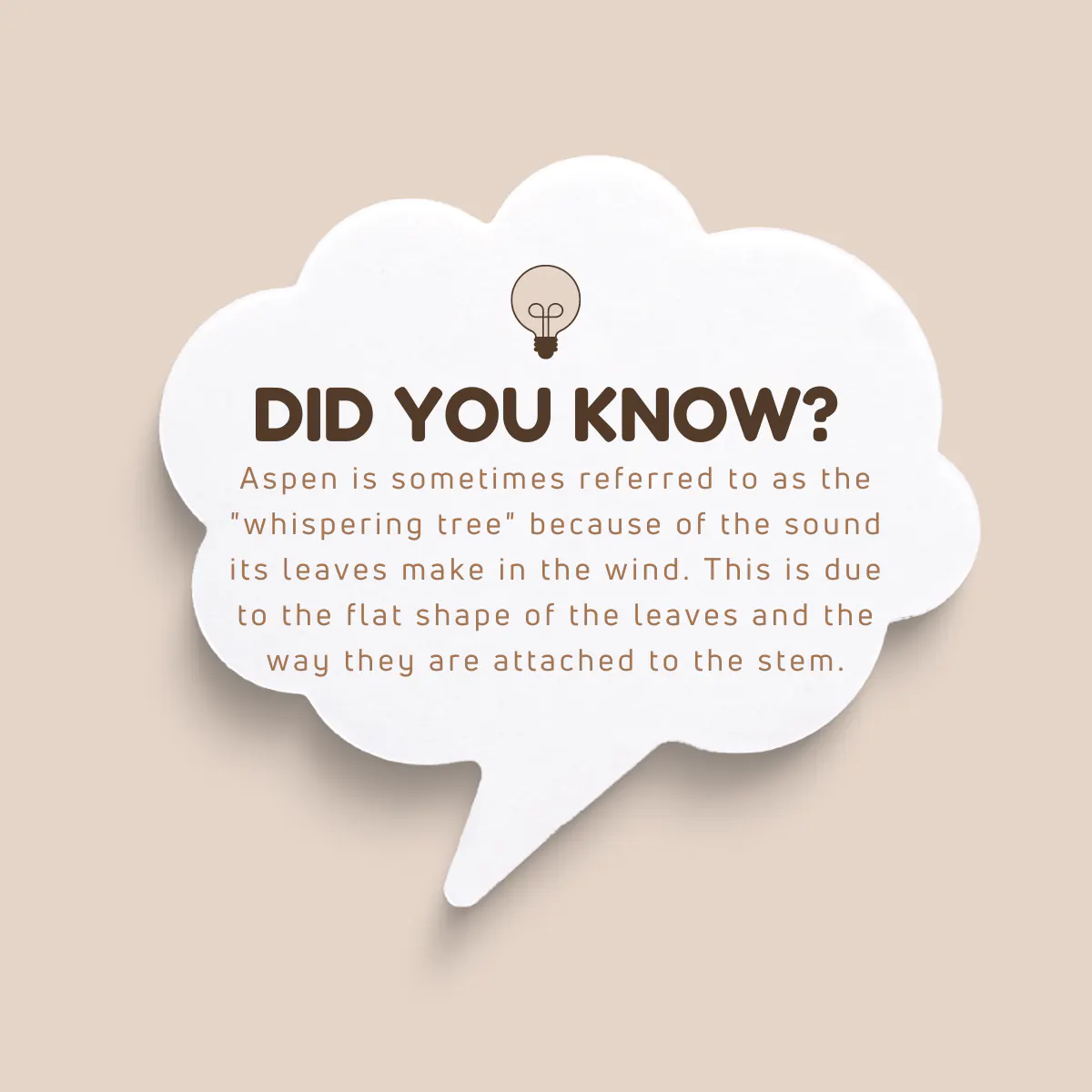
How Hard Is Aspen Wood?
Aspen wood is harder than any softwood but relatively softer than most hardwoods.
According to the Janka hardness scale, the hardness value given for the Aspen wood is 420 lbf (1,868 N) which is a lower hardness rating than most hardwoods.
For example,
- Maple wood has a 1,450 lbf (6,450 N) hardness rating
- Cherry wood has a 9,50 lbf (4,225 N) hardness rating
- Oakwood has a 1,290 lbf (5,738 N) hardness rating
As you can see Aspen wood has a very low amount of hardness and this is why it is considered as a soft hardwood, even though it belongs to the hardwood category.
Aspen wood has diffused porous structure with excellent staining properties.
Therefore, it is hard to recognize the ring structure. The diameter of porous is so small and evenly distributed. Because of having a small porous structure, the density and the hardness of Aspen wood are high.
Aspen has a straight grain with a uniform texture and the spaces between the fiber are less.
Therefore, the number of Aspen fibers per unit volume is high in Aspen wood, therefore hardness and density are high.
Aspen is less prone to contraction and expansions with temperature and moisture changes.
Therefore, it has great stability same as high-grade hardwoods.
But when compared in terms of hardness and density, they are pretty much lower than those hardwoods because of their soft and uniform texture.
Janka hardness test is the test that we do to measure the resistant of a particular wood to wear and dent. It means, if some wood has great wear and dent resistance, that means it has a high hardness rating.
So, according to the universal Janka hardness rating, Aspen wood has a hardness rating of 420 lbf (1,868 N).
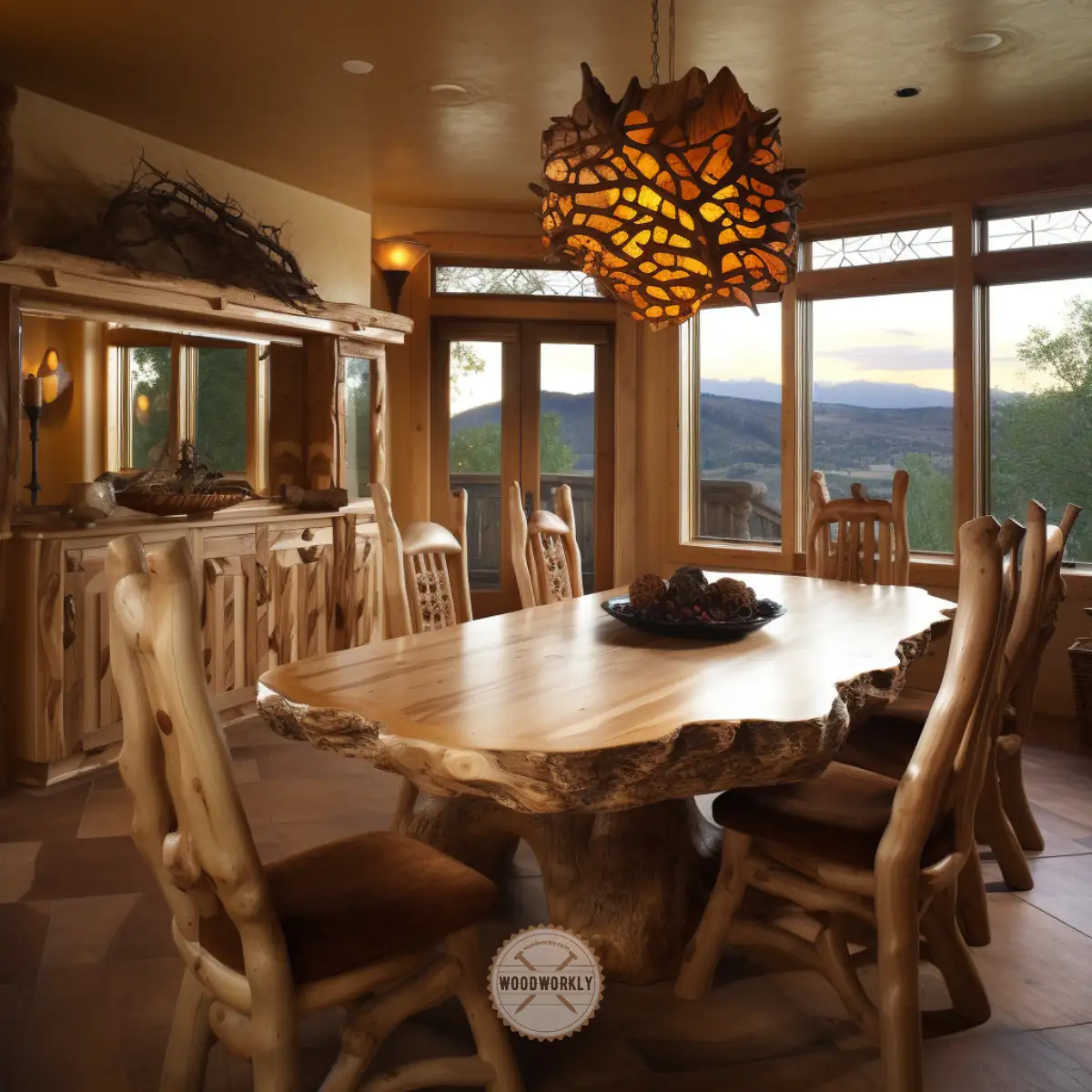
Hardness Of Aspen Compared to Other Woods
Here is the Janka hardness rating of other popular woods that we use in our day-to-day woodworking activities.
| Wood species | Hardness value |
| Red Mahogany, Turpentine | 2,697 lbf (12,000 N) |
| Brazilian Cherry, Jatoba | 2,350 lbf (10,500 N) |
| Golden Teak | 2,330 lbf (10,400 N) |
| Hickory, Pecan, Satinwood | 1,820 lbf (8,100 N) |
| Rosewood | 1,780 lbf (7,900 N) |
| Hard Maple, Sugar Maple | 1,450 lbf (6,400 N) |
| Australian Cypress | 1,375 lbf (6,120 N) |
| White Oak | 1,360 lbf (6,000 N) |
| Ash (White) | 1,320 lbf (5,900 N) |
| American Beech | 1,300 lbf (5,800 N) |
| Red Oak (Northern) | 1,290 lbf (5,700 N) |
| Yellow Birch / Baltic birch | 1,260 lbf (5,600 N) |
| Heart Pine | 1,225 lbf (5,450 N) |
| Teak | 1,155 lbf (5,140 N) |
| Black Walnut, North American Walnut | 1,010 lbf (4,500 N) |
| Cherry | 995 lbf (4,430 N) |
| Black Cherry, Imbuia | 950 lbf (4,200 N) |
| Red Maple | 950 lbf (4,200 N) |
| Silver Maple | 700 lbf (3,100 N) |
| Southern Yellow Pine (Loblolly and Shortleaf) | 690 lbf (3,100 N) |
| Douglas Fir | 660 lbf (2,900 N) |
| Aspen (Big tooth) | 420 lbf (1,870 N) |
| Basswood | 367 lbf (1,632 N) |
| European Aspen (Common Aspen) | 380 lbf (1,650 N) |
| Aspen (Quaking) | 350 lbf (1,560 N) |
| Cedar (White) | 320 lbf (1,423 N) |
As you can see there are three types of Aspen woods. Which are,
- Bigtooth Aspen – Soft Hardwood
- European Aspen (Common type) – Soft Hardwood
- Quaking Aspen -Soft Hardwood
All three species of Aspen wood have the nearly same amount of hardness rating and they only differ because of the shape of the leaves and heights of trees.
From the table above you can get an idea about why we consider Aspen wood as a soft hardwood.
It is unbelievably soft when compared to all other hardwood types.
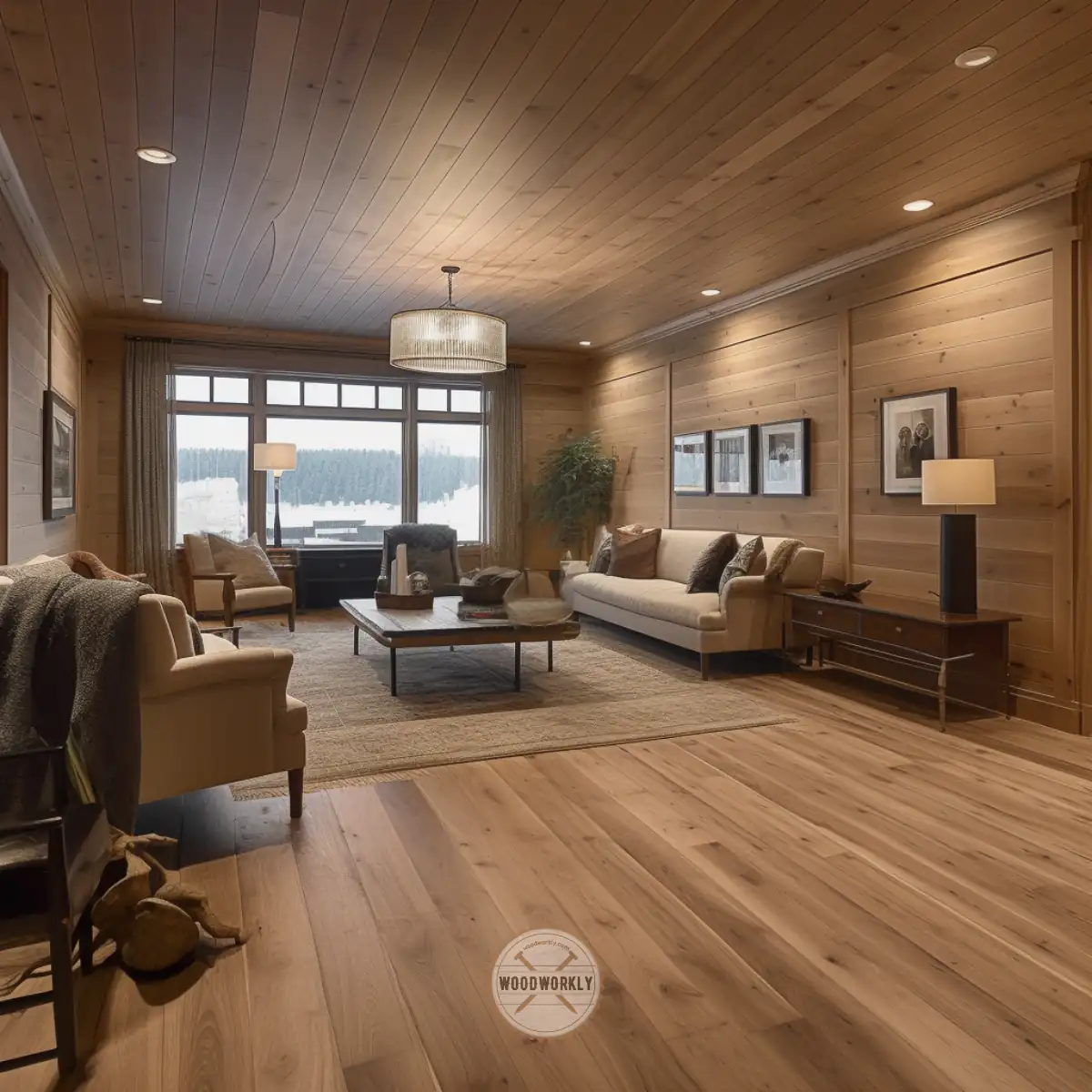
So, let’s head into the characteristic features of Aspen wood and how they can help us to get an idea about its hardness and density.
Aspen Wood Characteristics
Aspen wood is light brown straight-grain wood with medium texture and natural luster. Sapwood is pale yellow nearly white.
It has a diffuse porous structure, and is evenly placed throughout the wood.
Spacings between Aspen fibers are close and the density is high compared to softwoods.
Even though Aspen wood is considered a hardwood, its durability is very less. Aspen wood furniture does not last long.
If you haven’t done a proper finishing, it will rot so fast. It is non-durable and so favorable to get damaged from insect attacks.
Aspen wood does not resistant to scratches and dents. Therefore, once it gets scratched, the water will eventually penetrate inside of the wood and rot so fast.
Therefore, Aspen wood is not hard enough to use for wet areas such as bathrooms, basements, and kitchens.
Apart from the downside of Aspen wood, it has great qualities which can easily be applied to any woodworking project.
The qualities of Aspen wood are,
- Soft hardwood
- Lightweight
- Soft
- Good dimensional stability
- Easy to finish (stain and paint well)
- Easy to cut
- Great machinability
Aspen wood is not hard to cut because of its softness and is easy to work with even for a beginner in woodworking. It does not split easily.

Properties Of Aspen Wood
The main characteristics of Aspen wood can be displayed as follows.
| Color | Light brown to white color |
| Density | 420 kg/m3 |
| Hardness | 420 lbf (1,868 N) |
| Stiffness | 1.18 Mpsi |
| Wood Type | North American Soft Hardwood |
| Applications | Packaging, paneling, furniture making, flooring |
So, let’s have a look at the uses of Aspen wood which are great for you to get an idea about how its hardness is useful for those applications.
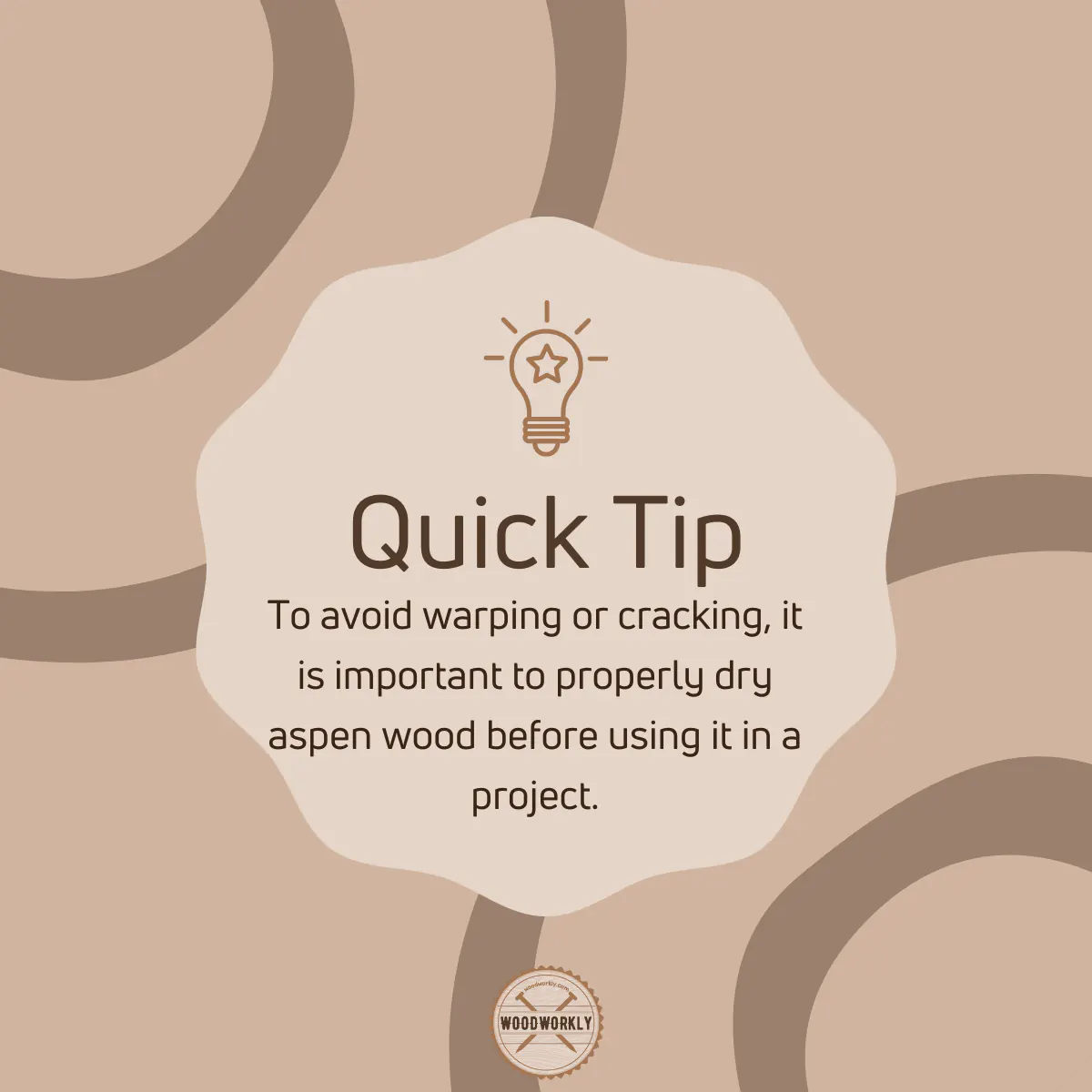
What Is Aspen Wood Good For?
Aspen wood is popular for the following applications because of its great qualities and dimensional stability.
Here’re some common uses of Aspen wood,
- Flooring
- Furniture parts
- Boxes and crates
- Plywood
- Molding
- Frames
- Toys
- Kitchen utensils
As you can see because of is a hardwood with relatively less hardness, Aspen wood is used for most simple woodworking projects.
But that doesn’t mean it is not good for large projects.
With proper finishing and good maintenance, Aspen is good to use for any woodworking project.
The main reason for using Aspen wood more than any other wood for the above applications is because of its great dimensional stability.
Aspen has good finishing properties as well. It takes stains and paints well.
Because of having porous structure and being a soft hardwood, the stains, and pigments will easily penetrate the wood inside and spread evenly throughout the wood without making any wood stain mistakes.
This will prevent Aspen wood from getting a blotchy surface and Aspen’s streaks and color combinations make each woodwork unique and aesthetic.
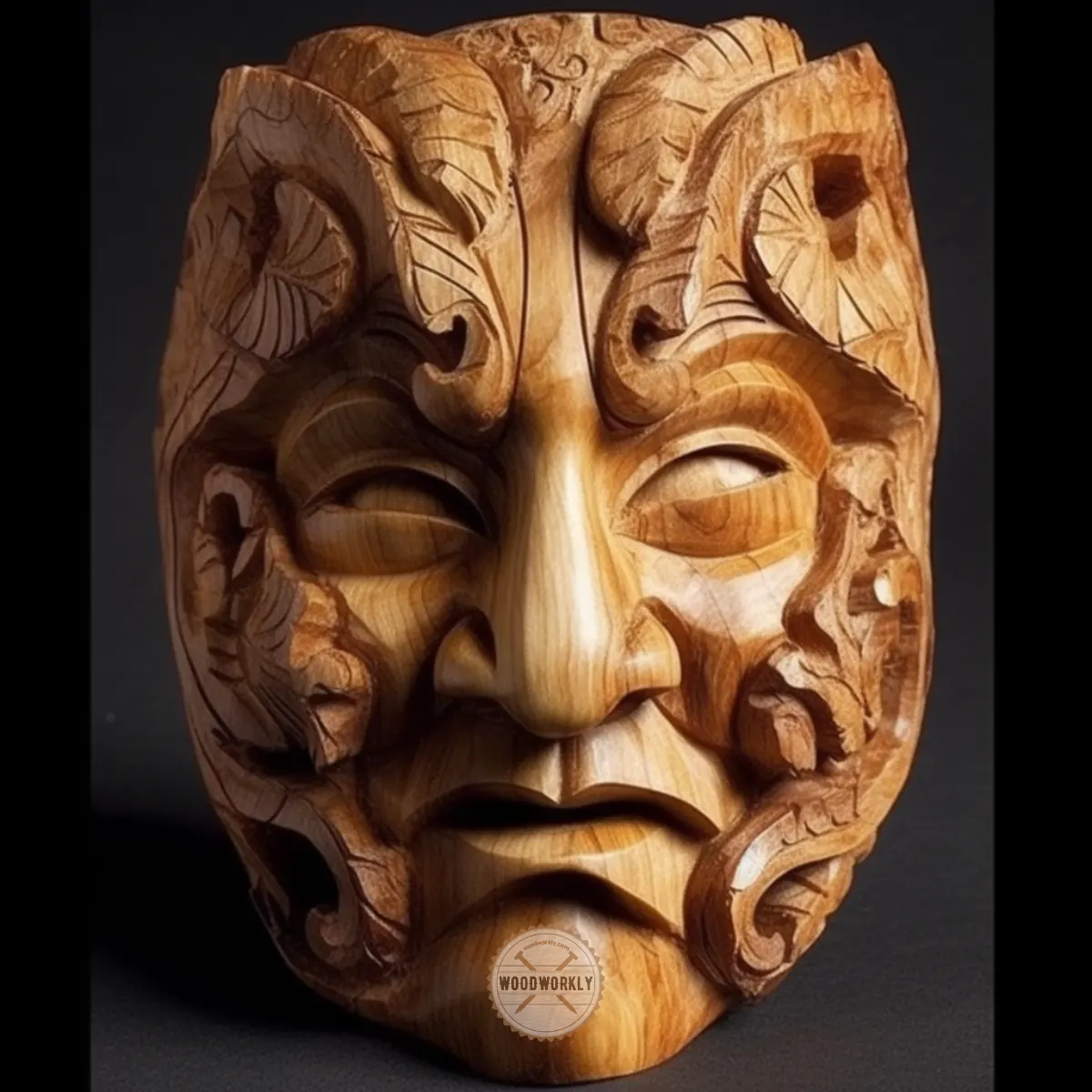
Pros and Cons Of Aspen Wood
| Pros | Cons |
|---|---|
| Light and soft | Low bending strength |
| Fine, uniform texture | Slightly fuzzy when machined |
| Does not split when nailed | Limited availability, especially in thick stock |
| Good dimensional stability | Softness can lead to damage in high-traffic areas |
| Takes paint and stain well | Requires extra care for a smooth finish |
| Less prone to warping and distortion | May not be suitable for pets due to its softness |
| Ideal for a variety of applications | Can show wear and tear more readily than harder woods |
| Unique aesthetic appeal | Not as hard as many other hardwoods |
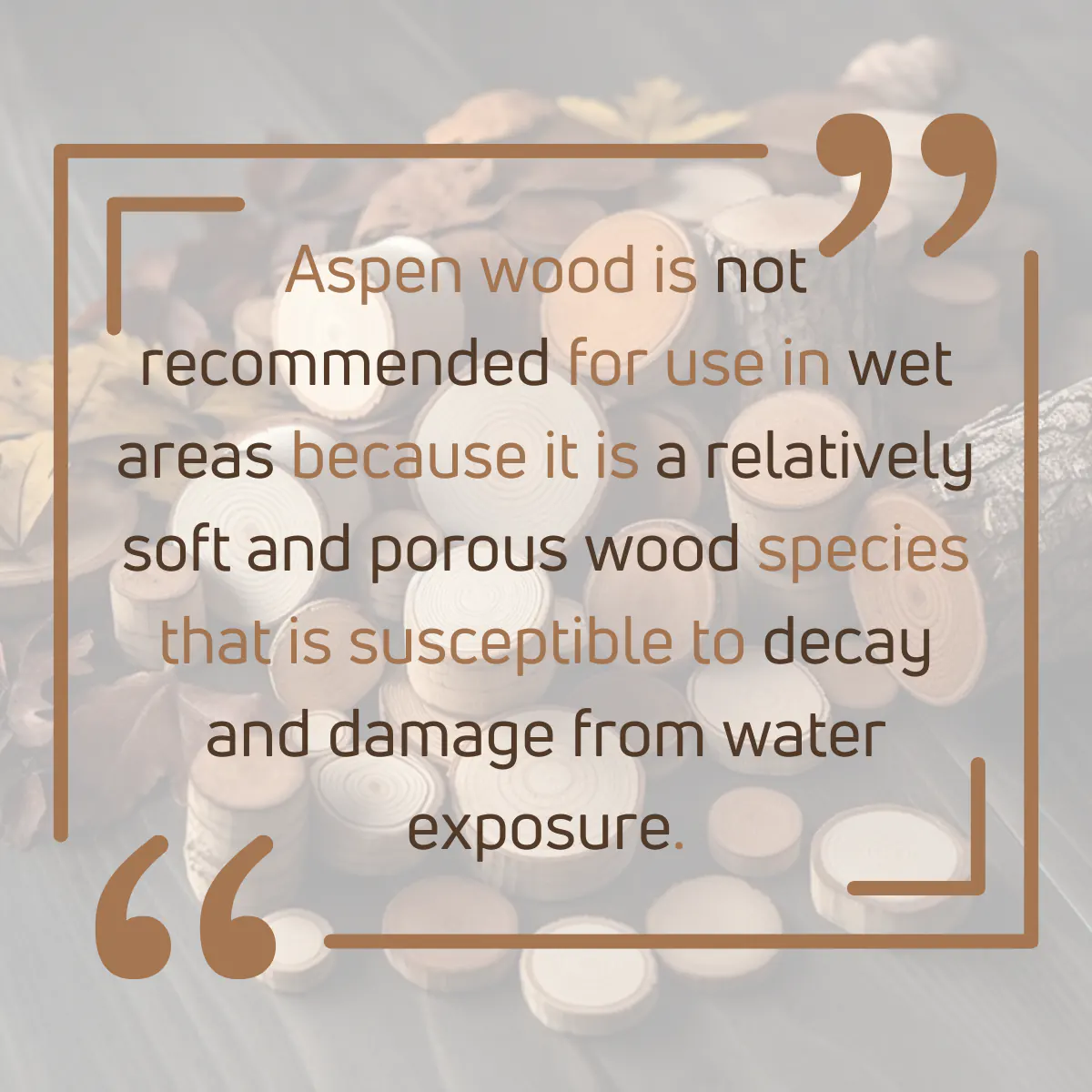
How Strong is Aspen Wood?
Aspen wood is considered a weak wood type. Even though most of the hardwoods have great strength, Aspen wood isn’t.
Aspen wood has a compressive strength of 4,250 psi and bending strength of 8,400 psi which is relatively less than many hardwoods we know.
Knots of Aspen wood are numerous, generally tight, and comparatively small. Those knots reduce the strength of Aspen wood.
Because Aspen wood is not so strong and contains lots of defects, you need to focus more when using it for framings, such as joists, studding, and rafters.
The bending strength of Aspen wood is useful in joists, beams, and rafters.
The poor strength of Aspen wood causes lots of trouble when it uses for outdoor furniture, because of not weather-resistant and rot so easily when in contact with water.
Read to know the method of protecting furniture before placing them outside.
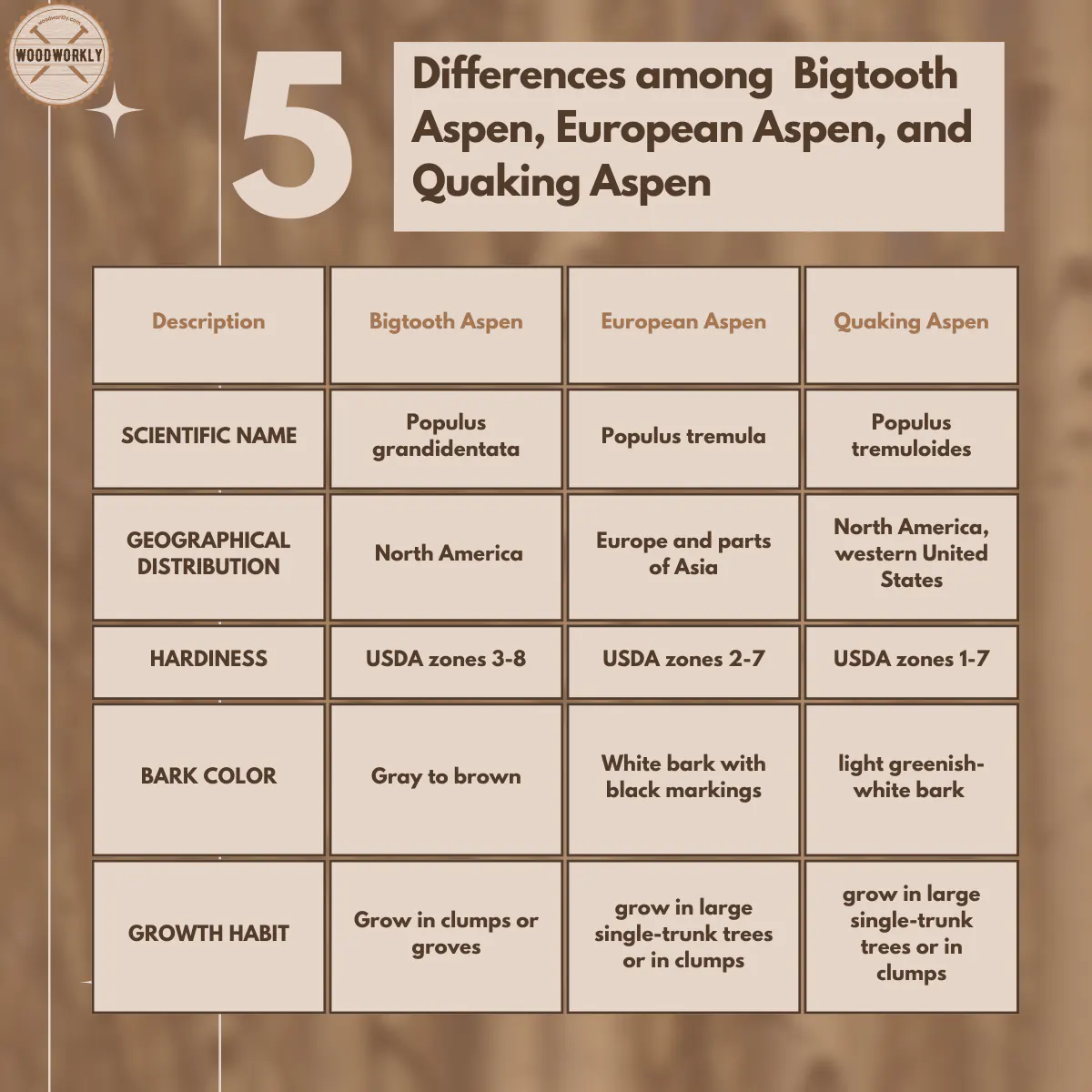
Aspen Hardwood Flooring
Even though Aspen wood is not hard as other hardwoods (Oak, cherry, Maple) which are commonly used for flooring, it has good dimensional stability.
Stability is pretty much important when it comes to flooring applications. This is the reason why Aspen wood is popular for flooring.
Aspen wood is less prone to contraction and expansion with temperature and humidity changes. Therefore, it is not favorable to warp, crown, or cup.
So, let’s have a look at the advantages and disadvantages you’ll probably get by using Aspen wood for flooring.
Aspen Hardwood Flooring Pros and Cons
Here’re some of the main pros and cons of Aspen wood flooring applications.
| Pros | Cons |
| Hardwood | Less durable |
| High stability | No rot resistance |
| Take stain and paint well | Less strong |
| Easy to work with | Expensive |
| Beautiful wood grain | Less availability |
| Doesn’t split easily | Less resistant to moisture |
| Low flammable | Easily get attacked by insects |
| Easy to finish | No scratch or dent resistance |
| No shrinkage | |
| Lightweight |
As you can see there are lots of advantages of using Aspen wood for flooring purposes.
The disadvantages can minimize by applying a good coating and also by giving proper maintenance regularly.
Congrats folks! now you know whether is aspen wood a hardwood or softwood with its characteristic features.
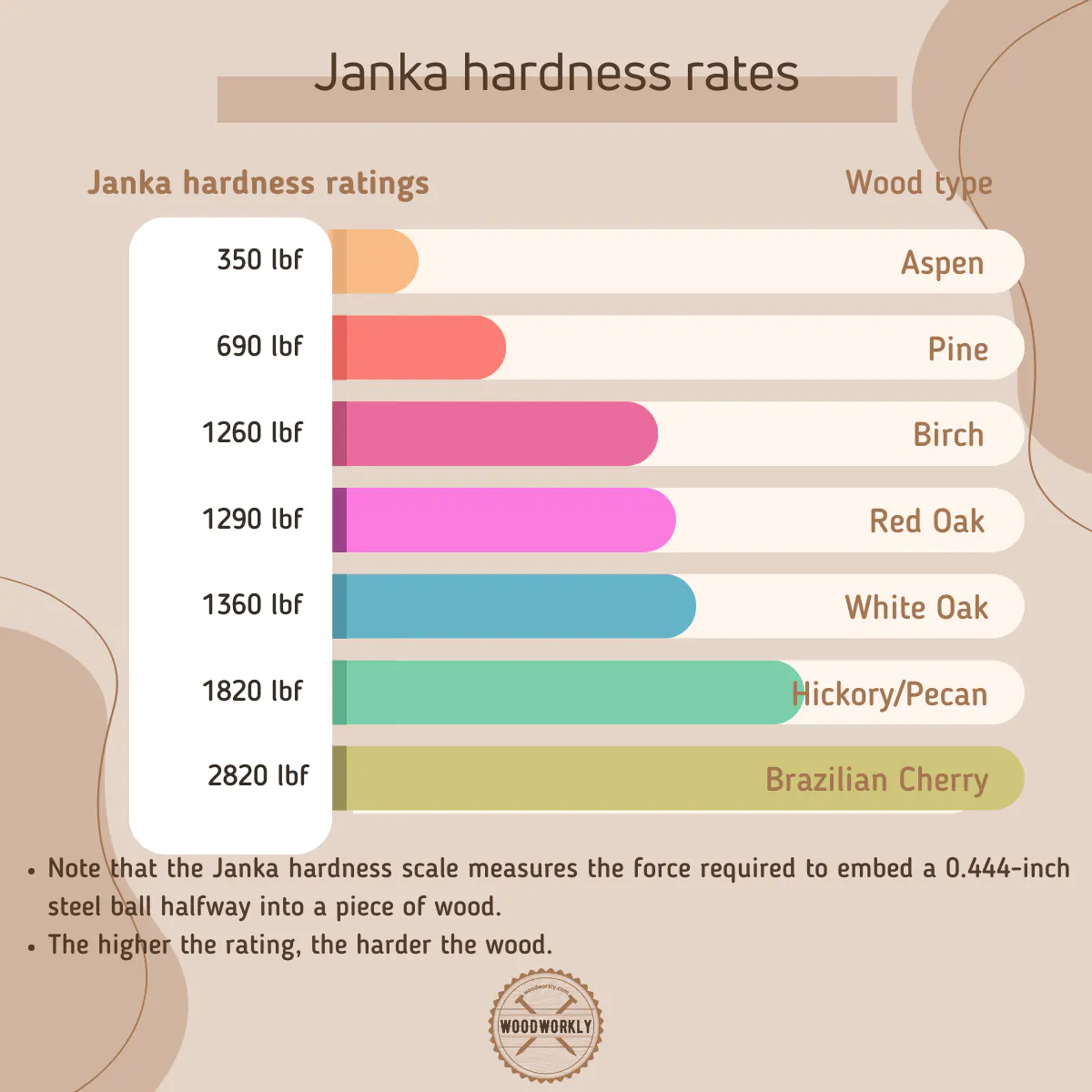
So, let’s compare the hardness of aspen with some other popular wood types that we mostly use.
Is Aspen Harder Than Pine?
Aspen is harder than Pine. In terms of hardness and density, Aspen wood is a hardwood and Pinewood is a softwood.
So, most of the time hardwoods have higher hardness and strength than softwoods.
According to the Janka hardness ratings,
| Wood Type | Hardness |
| Aspen Wood | 420 lbf |
| White Pine | 380 lbf |
| Sugar Pine | 380 lbf |
Even though this shows a slight difference between Aspen wood and Pine in terms of hardness, in real-world Aspen wood is a clear winner in hardness against Pinewood.
Which Is Stronger Aspen or Poplar?
Both Aspen wood and Poplar wood show relatively the same characteristics in terms of strength.
Yellow Poplar is stronger than Aspen wood. but in terms of shock resistance, Aspen wood has better shock resistance than Pinewood.
| Strength | Aspen Wood | Poplar Wood |
| Compressive strength | 4,250 psi | 5,540 psi |
| Bending Strength | 8,400 psi | 10,100 psi |
As you can see Aspen wood has less compressive strength and bending strength than Poplar wood.
Therefore, Poplar is stronger than Aspen wood. But these slight changes can surely be ignored easily.
Let’s answer some of the frequently asked questions.
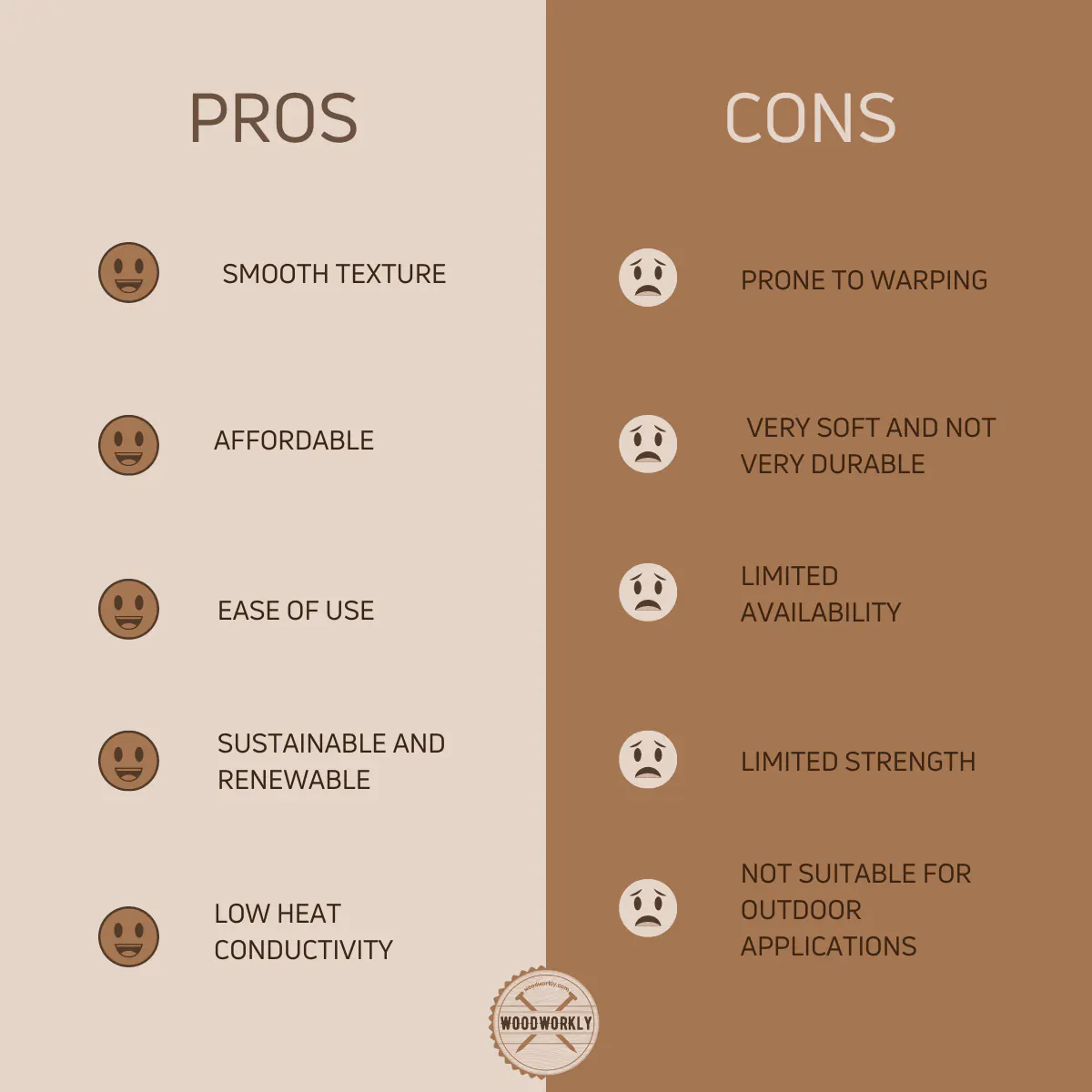
FAQs
How does Aspen wood fare in terms of workability?
Aspen wood is highly workable and user-friendly. It machines easily, doesn’t split when nailed, and it takes both paint and stain well, offering a beautiful finish.
Can Aspen wood be used for flooring?
While not as common as other hardwoods due to its softer nature, Aspen wood can indeed be used for flooring. Its natural stability and fine grain pattern can add a unique character to a room.
Is Aspen wood resistant to temperature and moisture changes?
Aspen wood is known for its high dimensional stability, meaning it is less prone to expansion, contraction, or warping due to temperature and moisture changes.
Does Aspen wood have a distinct color?
Aspen wood showcases a light color spectrum. The sapwood is white and gradually transitions to a light brown heartwood, providing a minimal contrast, which is appreciated in many design contexts.
What does it mean that Aspen wood is ‘dimensionally stable’?
Being ‘dimensionally stable’ means that Aspen wood is less likely to warp, cup, or crown due to changes in temperature and moisture, making it reliable for a wide range of applications.
Did I cover all you wanted to know about: Is Aspen a Hardwood?
In this article, I took an in-depth look into check is Aspen a hardwood and how hard it is.
I have mainly discussed Aspen wood characteristics in terms of its hardness, uses of Aspen wood, and how Aspen wood is useful in flooring applications with pros and cons.
Aspen wood is a hardwood. But it is not hard as Oak, Maple, and Cherry woods. Aspen wood has a hardness rating of 420 lbf (1,868 N) which is relatively lower than most hardwoods. Therefore, Aspen is considered a soft hardwood.
Furthermore, I have answered frequently asked questions as well.
Hope you have the knowledge about Aspen wood enough to go for your next woodworking project with this beautiful wood. Have fun in woodworking!